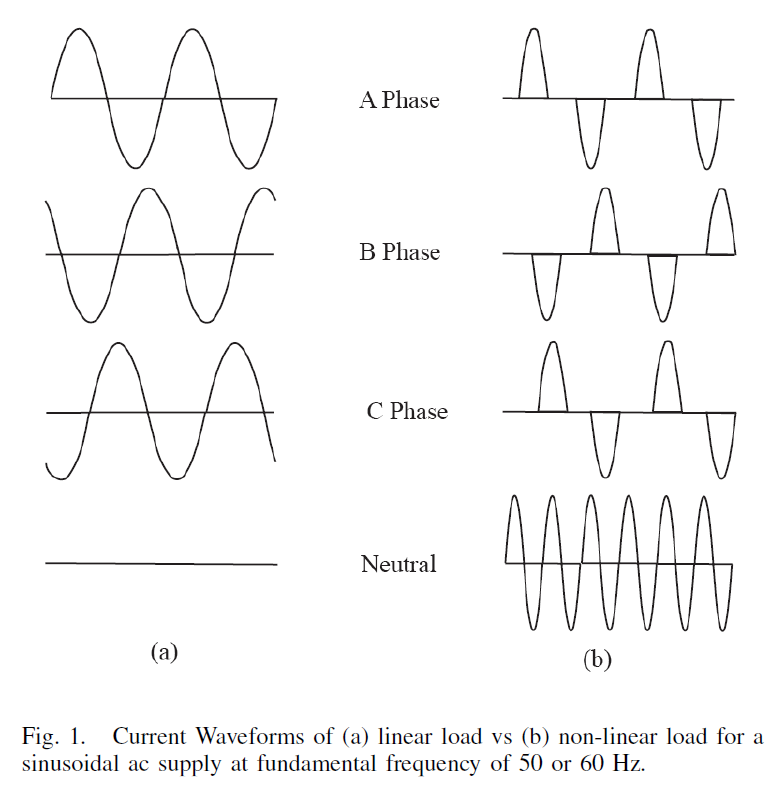The presence of harmonic current in a power system increases the current in the neutral conductor due to phase current imbalance (refer to Fig. 1b).

To ascertain that the current-carrying capacity of the circuit is sufficient factoring the presence of harmonics in the system, Table 4Aa (BS7671 – 2011) provides some factors in determining the cable sizes
| Third harmonic content of line current* % |
Rating factor | |
|---|---|---|
| Size selection is based on line current |
Size selection is based on neutral current |
|
| 0 – 15 | 1.0 | – |
| >15 – 33 | 0.86 | – |
| >33 – 45 | – | 0.86 |
| >45 | – | 1 |
| *NOTE: The third harmonic content expressed as total harmonic distortion. aReference: BS 7671 – 2011 |
||
How to use the Table 4Aa.
- Case 1
- Assuming a design current carrying capacity of circuit to 25A with a third harmonic of 32%.
- As the third harmonic current is less than 33%, the governing current for cable selection should be the line current.
- 25/0.86 = 29A (This is the minimum current-carrying capacity of the cable phase conductors to satisfy Table 4Aa.
- Case 2
- Assuming a design current carrying capacity of circuit to 25A with a third harmonic of 44%.
- As the third harmonic current is greater than 33%, the governing current for cable selection should be the neutral current.
- 25/0.86 = 29A (This is the minimum current-carrying capacity of the of cable neutral conductor to satisfy Table 4Aa.
Note: The minimum current carrying capacity stated herein does not include other derating factors such as grouping, temperature, etc.
References:
- Cable Heating Effects due to Harmonic Distortion in Electrical Installations
- Jonathan Blackledge
Dublin Institute of Technology, [email protected]
et al.